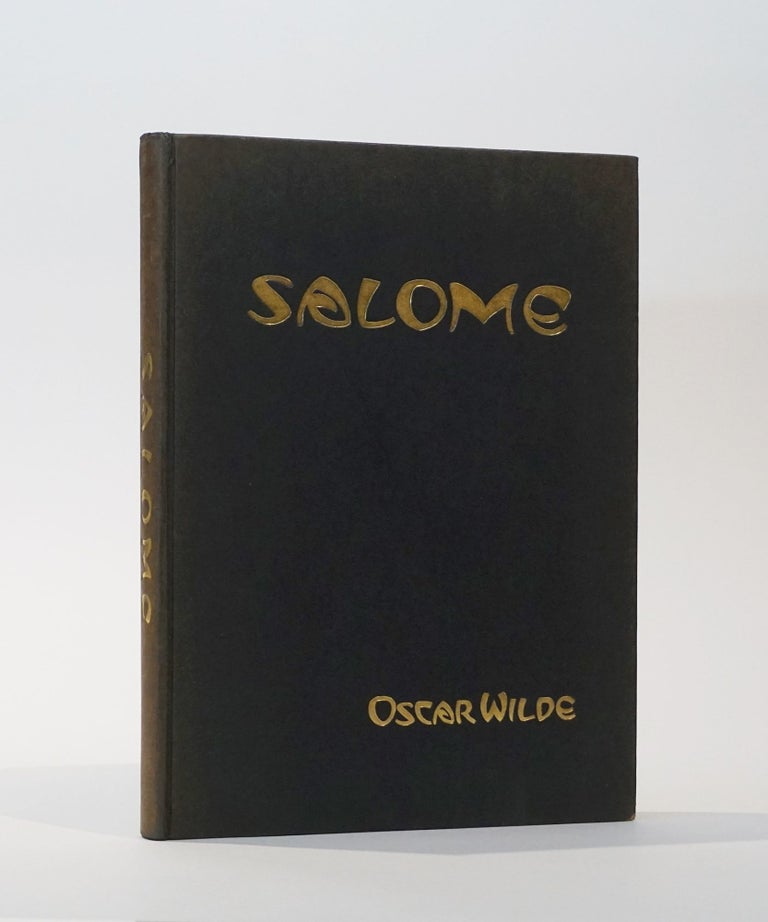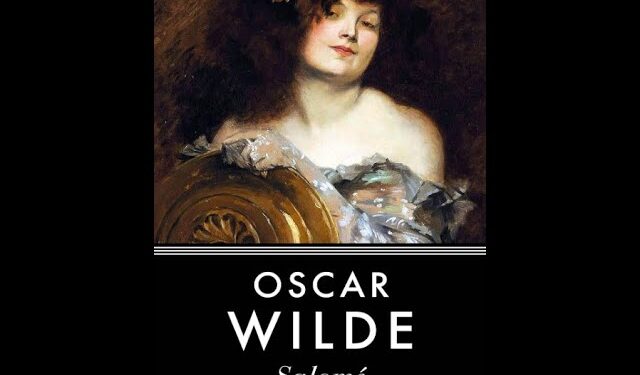Introduction
Act wise Salome By Oscar Wilde Play Summary Oscar Wilde’s “Salomé” is a one-act play that delves into themes of desire, power, and the intersection of sexuality and morality. Written in 1891 and originally in French, the play presents a retelling of the biblical story of Salomé, a young woman who performs a seductive dance for King Herod, leading to a tragic series of events. Wilde’s version captures the decadence of the late Victorian era and showcases his distinctive literary style, marked by lyrical language and philosophical musings. The play is notable for its exploration of female agency, the consequences of desire, and the conflict between passion and morality.
Act-by-Act Summary
Act 1
The play opens in the palace of King Herod, who is hosting a banquet. The setting is opulent and extravagant, filled with a sense of foreboding and tension. The atmosphere is heavy with the anticipation of lust, desire, and betrayal. The first characters introduced are Herod, the tetrarch of Judea, and his wife, Herodias, who is the mother of Salomé. Herodias expresses her disdain for John the Baptist (Jokanaan), who is imprisoned in a nearby cistern for his outspoken condemnation of Herod’s actions.
As the act unfolds, the characters engage in discussions about Jokanaan, whom Herod fears but is also fascinated by. Herodias resents Jokanaan, feeling threatened by his moral authority and influence. Herod, however, is intrigued by Jokanaan’s prophecies and is drawn to the idea of power and truth that Jokanaan represents.
READ MORE
Salomé’s Entrance
Salomé makes her entrance, captivating all the characters with her beauty and grace. Herod is immediately infatuated with her, viewing her as a symbol of desire and purity. Salomé’s character is complex; she embodies both innocence and a burgeoning sense of sexual power. Herod desires her, but he is also wary of her influence.
Salomé expresses her longing to see Jokanaan, whom she finds both repulsive and intriguing. Her fascination with him stems from a mixture of fear and attraction. She believes that her encounter with Jokanaan will provide her with a deeper understanding of herself and her desires.

The Dance of the Seven Veils
In a pivotal moment, Herod offers to grant Salomé anything she desires if she performs the Dance of the Seven Veils for him. This dance symbolizes the unveiling of femininity and sensuality. Salomé, aware of her power over men, accepts the challenge, but her motivations are complex. She wishes to use her dance to manipulate Herod and fulfill her own desires.
As Salomé prepares for the dance, there is a palpable tension in the air. The audience is aware that the dance will lead to tragic consequences, foreshadowing the inevitable conflict between desire and morality.
The Dance
Salomé performs the Dance of the Seven Veils, enchanting Herod and the guests. The dance is both sensual and provocative, representing Salomé’s awakening as a woman. With each veil she removes, she reveals more of her physicality and her inner turmoil. The dance culminates in a moment of climax where Salomé reveals herself fully, embodying both innocence and seduction.Act wise Salome By Oscar Wilde Play Summary
Herod is overwhelmed by desire, offering Salomé anything she wishes. In a moment of dramatic tension, Salomé asks for the head of Jokanaan on a silver platter. This shocking request stems from a complex mix of vengeance and passion; she feels compelled to possess Jokanaan fully, even in death.
Herod’s Dilemma
Herod is horrified by Salomé’s request, yet he feels bound by his oath to grant her anything. He is caught between his desire for Salomé and his moral hesitation regarding Jokanaan. The act concludes with Herod’s internal conflict, setting the stage for the tragic events that follow.
Themes and Analysis
Desire and Power
One of the central themes of “Salomé” is the interplay between desire and power. Salomé’s dance symbolizes her awakening sexuality and the power it gives her over men, particularly Herod. Herod’s infatuation with Salomé illustrates the dangers of unchecked desire and how it can lead to moral decay.Act wise Salome By Oscar Wilde Play Summary
Femininity and Agency
Wilde’s portrayal of Salomé challenges traditional gender roles. Salomé is a complex character who embodies both innocence and seduction. Her ability to manipulate Herod through her dance highlights her agency, contrasting with the male characters’ attempts to control their desires.Act wise Salome By Oscar Wilde Play Summary

Morality and Consequences
The play explores the consequences of desire, particularly the moral implications of Salomé’s request for Jokanaan’s head. Herod’s struggle between desire and morality underscores the play’s commentary on the nature of sin and retribution. Salomé’s actions lead to tragic outcomes, raising questions about the nature of justice and punishment.Act wise Salome By Oscar Wilde Play Summary
The Role of the Other
The figure of Jokanaan serves as a moral compass within the play. His condemnation of Herod’s actions and his unwavering commitment to truth contrast sharply with the decadence of the court. Jokanaan represents a voice of reason amidst the chaos of desire and ambition, further highlighting the moral complexities of the other characters.
READ MORE
Conclusion
“Salomé” by Oscar Wilde is a compelling exploration of desire, morality, and the complexities of femininity. Through the character of Salomé, Wilde challenges societal norms and examines the interplay between power and sexuality. The play’s lyrical language and vivid imagery create a haunting atmosphere that lingers long after the final curtain.Act wise Salome By Oscar Wilde Play Summary
(FAQs)
1. What is the main theme of “Salomé”?
The main themes of “Salomé” include the interplay between desire and power, femininity and agency, morality and its consequences, and the role of the Other represented by Jokanaan.Act wise Salome By Oscar Wilde Play Summary
2. Who are the main characters in the play?
The main characters include Salomé, Herod, Herodias, Jokanaan (John the Baptist), and the Page of Herodias. Each character represents different aspects of desire, morality, and societal expectations.
3. What is the significance of the Dance of the Seven Veils?
The Dance of the Seven Veils symbolizes Salomé’s sexual awakening and her power over men. It serves as a pivotal moment in the play, leading to the tragic consequences of her desires.
4. How does Wilde portray Salomé as a complex character?
Salomé is portrayed as both innocent and seductive, embodying the duality of femininity. Her actions reflect a deep internal conflict between her desires and the societal expectations placed upon her.
5. What role does Jokanaan play in the narrative?
Jokanaan serves as a moral compass in the play, representing truth and justice. His condemnation of Herod and his unwavering principles contrast with the decadence of the court, highlighting the moral complexities of desire.
6. How does “Salomé” reflect the cultural attitudes of Wilde’s time?
The play reflects the late Victorian era’s concerns regarding sexuality, morality, and the role of women in society. Wilde’s portrayal of Salomé challenges traditional gender roles and questions societal norms.
7. What is the significance of Herod’s internal conflict?
Herod’s internal conflict represents the struggle between desire and morality. His inability to reconcile his feelings for Salomé with the consequences of her request highlights the dangers of unchecked desire.
8. How does Wilde use language to enhance the themes of the play?
Wilde employs lyrical and poetic language throughout “Salomé,” creating a rich atmosphere that enhances the themes of desire, power, and tragedy. The dialogue often reflects the characters’ internal conflicts and philosophical musings.
9. What are the tragic consequences of Salomé’s actions?
Salomé’s request for Jokanaan’s head leads to a series of tragic events, culminating in the death of Jokanaan and the further moral decay of Herod. The play raises questions about justice, punishment, and the cost of desire.
10. Why is “Salomé” considered a significant work in literature?
“Salomé” is considered significant for its exploration of complex themes, its challenge to societal norms, and Wilde’s distinctive literary style. The play continues to resonate with audiences today, reflecting timeless questions about desire, morality, and the human condition.Act wise Salome By Oscar Wilde Play Summary
READ MORE
















